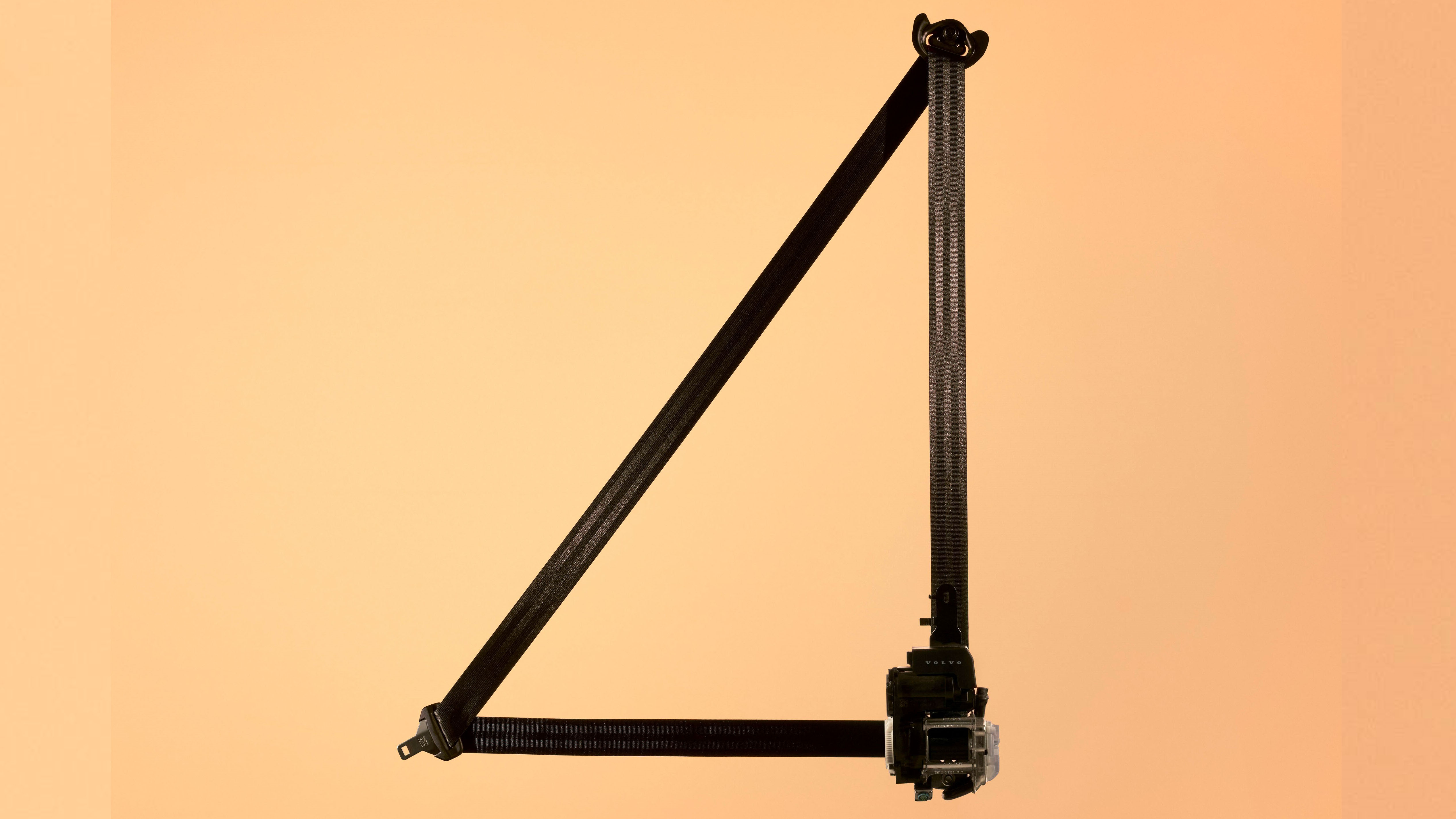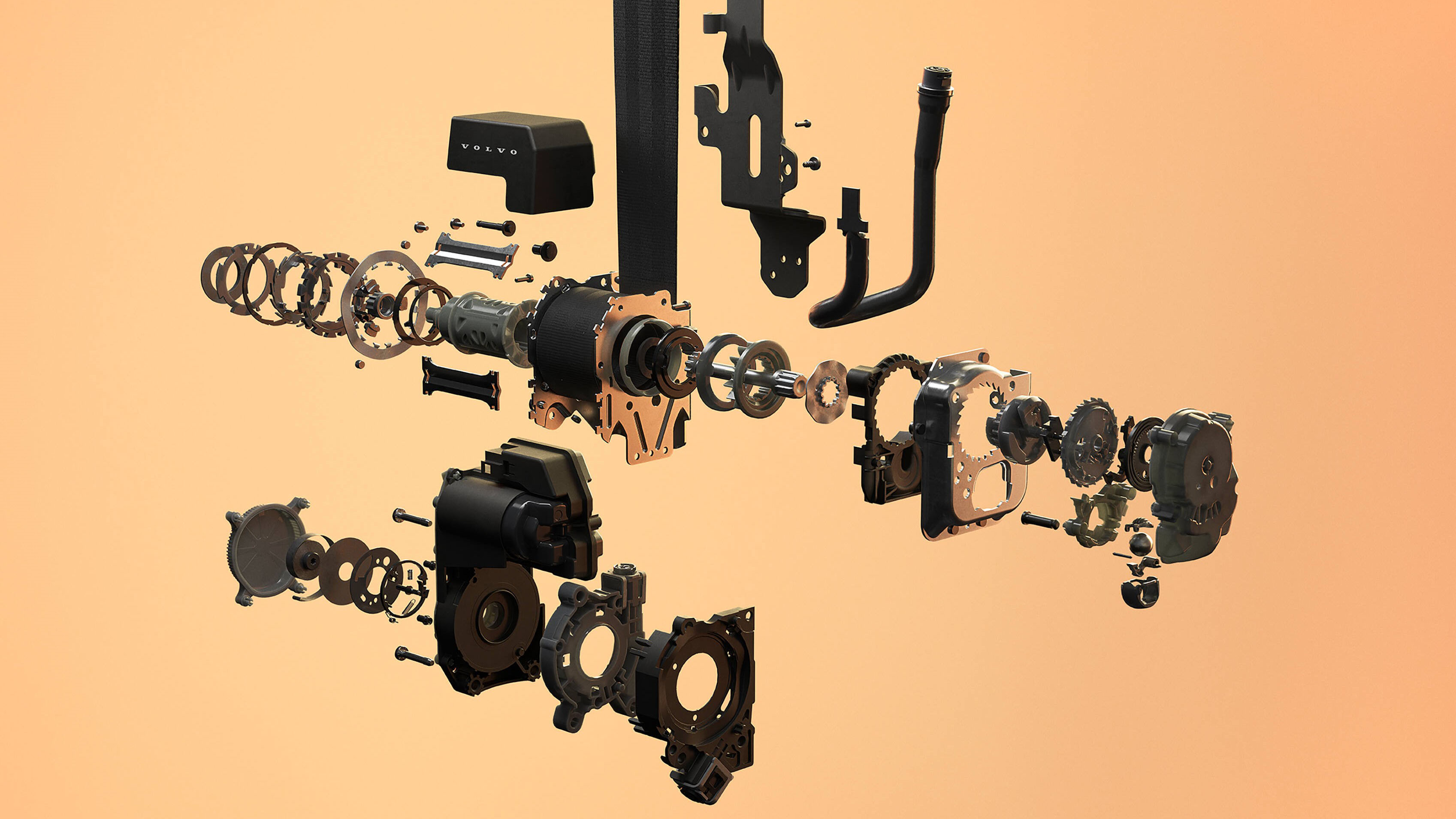
Volvo reveals new ‘adaptive’ seatbelt that uses sensors and OTA updates
Thought the humble safety belt was… ‘safe’ from digitisation? Think again
When the Volvo EX60 arrives next year, it will debut a “major improvement” to one of motoring’s oldest and simplest safety measures. Once again, the Swedish carmaker has sought to improve the humble seat belt, and this time, it’s got sensors.
Lots of sensors, each one feeding back real-time traffic and situational data into the EX60’s brain so that it can better distribute the load of the belt – adapting it to an individual – in the unfortunate event of an accident.
How? Witchcraft, but mostly those sensors. In the “blink of an eye”, these sensors analyse things like the direction, speed and passenger posture during a crash, and shout this at the seat belt so it can react and stop accordingly.
And there are more ways for it to react, too. Volvo tells us current, modern seat belts have three settings for how heavily the belt stops you in an accident. For the EX60, Volvo’s gone full Spinal Tap and upped these profiles to eleven.
It’s also increased the possible number of settings available, to allow the belt to react more specifically. “For example, a larger occupant in a serious crash will receive a higher belt load setting to help reduce the risk of head injury,” said Volvo. “While a smaller occupant in milder crash will receive a lower belt load setting to reduce the risk of rib fractures.”
Clever, right? It’ll only get cleverer, thanks to over-the-air (OTA) updates that’ll continually improve the system as Volvo learns more: more about the car’s occupants, different accident and traffic situations, and new response strategies.
“This marks a major upgrade to the modern three-point safety belt, a Volvo invention introduced in 1959, estimated to have saved over a million lives,” said Volvo’s safety centre boss Asa Haglund.
Yep, though the humble seat belt can trace its history back to the mid 19th century, it was a Volvo engineer named Nils Bohlin who transformed it into the modern three-point belt we all use today. And Volvo gave that to the world for free. Reckon it’s onto something with this new adaptive belt?
Top Gear
Newsletter
Thank you for subscribing to our newsletter. Look out for your regular round-up of news, reviews and offers in your inbox.
Get all the latest news, reviews and exclusives, direct to your inbox.
Trending this week
- 2026 TopGear.com Awards
"Engineering at the cutting edge": why the Ferrari F80 is our hypercar of the year
- Car Review
Toyota Aygo X
- 2026 TopGear.com Awards
The Top Gear estate car of the year is... the Audi A6 Avant
- 2026 TopGear.com Awards
Porsche GT boss Andreas Preuninger: 'we want to make something for the enthusiast'










